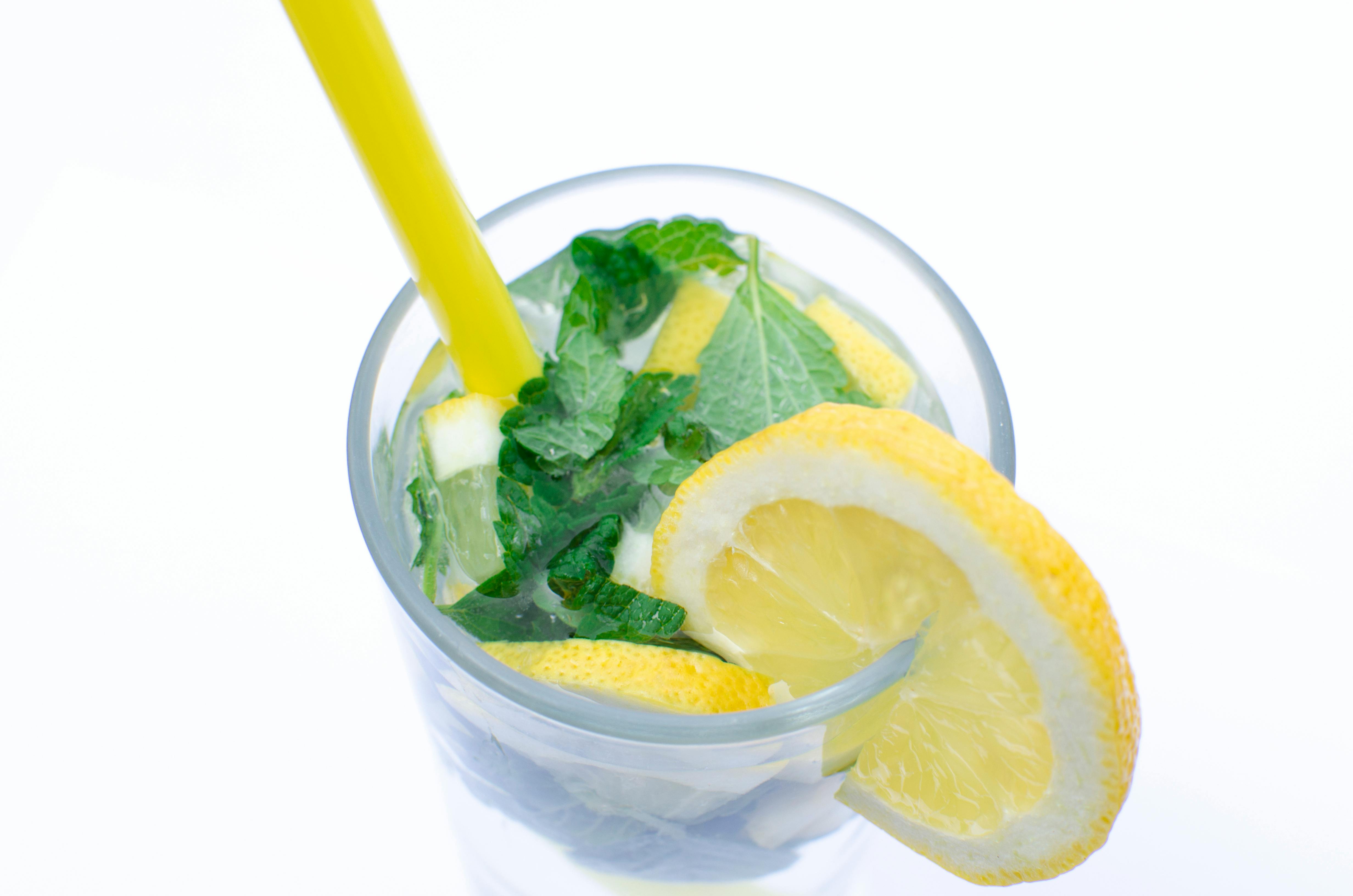Frozen fruits are a convenient and nutritious way to get your daily recommended servings of fresh produce. But, like any other type of food, frozen fruits may contain potentially harmful chemicals such as pesticides. It’s important to understand the potential risks associated with eating frozen fruits and how to minimize those risks. In this article, we’ll explore whether frozen fruit has pesticides and what you can do to limit your exposure to them.Yes, frozen fruit can have pesticides. While producers of frozen fruits often use fewer pesticides than when producing fresh fruits, certain types of chemicals may still be used. To ensure that your frozen fruit is free of pesticides, it is best to buy organic frozen fruits.
What are Pesticides?
Pesticides are chemicals used to control and eliminate pests, such as weeds, insects, rodents, fungi and other organisms that can cause damage or disease. They are used in both agricultural and non-agricultural settings, including homes, gardens, parks and recreational areas. Pesticides are regulated by the Environmental Protection Agency (EPA) and must meet certain safety standards before they can be used.
Pesticides can be either synthetic or natural. Synthetic pesticides are created in a laboratory and often contain toxic chemicals that can be dangerous to humans and the environment. Natural pesticides are derived from plants or animals and typically have fewer harmful side effects than synthetic pesticides.
Pesticides work by killing or inhibiting the growth of pests, but they can also have unintended consequences on beneficial organisms such as pollinators or beneficial insects. It is important to use them carefully and only when necessary to avoid harming beneficial species. When using any pesticide it is important to follow all label instructions carefully and store products safely out of reach of children and pets.
The Effect of Pesticides on Frozen Fruit
Pesticides are used in agricultural production to protect crops from pests and diseases. Unfortunately, these chemicals can also have an effect on the quality of the food that is produced. In particular, frozen fruit is particularly susceptible to the effects of pesticides. This article will look at how pesticides can impact frozen fruit and what can be done to reduce their impact.
Pesticides are generally used in two ways: as a direct application to crops, or as a systemic application that is absorbed into the plant itself. When pesticides are applied directly, they can come into contact with the frozen fruit as it is harvested and processed. This means that there is potential for residue to remain on the fruit when it reaches consumers. This residue can be harmful if consumed in large quantities, and can also affect the taste and texture of the fruit.
Another issue that arises from pesticide use is how it affects pollinators and other beneficial insects. These insects are essential for pollination and help to maintain healthy ecosystems. Pesticide use has been linked to a decrease in bee populations, which has led to an overall decline in pollination activity. This could have a negative effect on crop yields, which could eventually lead to higher prices for consumers.
Finally, pesticide use has also been associated with an increased risk of certain diseases such as cancer and neurological disorders. While there is still much research being conducted into this area, it is clear that pesticide exposure should be limited as much as possible in order to protect public health.
Fortunately, there are steps that can be taken to reduce the effects of pesticides on frozen fruit. Organic production methods limit or eliminate the need for chemical inputs such as pesticides, making them safer for both consumers and the environment. Additionally, farmers can use integrated pest management strategies such as planting cover crops or using beneficial insects instead of chemicals.
In conclusion, frozen fruit is particularly vulnerable to the impacts of pesticide use due to its harvesting and processing methods. Although organic production methods provide an alternative option for reducing pesticide exposure, it is important for consumers to be aware of any potential risks associated with regular pesticide use so they can make informed decisions when buying their food products.
Is There a Risk of Exposure to Pesticides in Frozen Fruit?
The use of pesticides in food production is an ongoing concern. While the use of pesticides can help protect crops from pests and diseases, there is a risk that they may contaminate our food supply. This is particularly true with frozen fruits, which are often sourced from countries where pesticide regulations may be less stringent than in the U.S.
When it comes to frozen fruits, there are several factors that can increase the risk of exposure to pesticides. The first is how the fruit was grown and harvested. If it was exposed to high levels of pesticides, then these chemicals could remain on the fruit even after it has been frozen. Additionally, if the fruit was grown using unsustainable methods such as monoculture or heavy irrigation, this could also lead to higher levels of pesticide residue on the fruit.
The second factor is how long the frozen fruit has been stored before it reaches your kitchen. The longer a product has been stored, the more likely it is to have been exposed to environmental contamination, including pesticides. This means that if you purchase older batches of frozen fruit, there is a greater risk that you may be exposed to pesticide residue when you consume them.
Finally, it’s important to remember that even if a product has been certified organic or labeled as “pesticide-free” doesn’t necessarily mean that there are no traces of pesticide residue on it. Some organic products still contain trace amounts of chemicals used in conventional farming practices such as fertilizers or herbicides.
Overall, while there is some risk of exposure to pesticides in frozen fruits, this risk can be minimized by purchasing fresh produce whenever possible and ensuring that any products labeled organic or “pesticide-free” have been certified by a third-party organization such as USDA Organic or Quality Assurance International (QAI).
Additionally, consumers should also pay attention to storage times and buy only recently harvested produce when possible in order to reduce their risk of exposure to pesticide residues present on frozen fruits.
Organic Frozen Fruits Safer than Non-Organic Ones?
Frozen fruits are becoming increasingly popular, as they provide convenience and can be stored for longer periods of time. But when it comes to selecting frozen fruits, many people wonder whether organic frozen fruits are safer than non-organic ones.
Organic fruits are grown without the use of synthetic fertilizers, pesticides, and other chemicals. Non-organic fruits, on the other hand, may contain residues of these substances which can pose health risks. Therefore, organic frozen fruits may be safer than non-organic ones in terms of potential exposure to these harmful chemicals.
In addition to being free from synthetic pesticides and fertilizers, organic frozen fruits also tend to have higher levels of nutrients compared to non-organic ones. This is because organic farming practices promote healthy soil which is rich in nutrients that can be absorbed by the plants. As a result, organic frozen fruits may contain higher levels of vitamins and minerals than their non-organic counterparts.
Finally, organic frozen fruits may be safer than non-organic ones due to the fact that they are produced using sustainable farming practices. Sustainable farming promotes biodiversity and helps protect the environment by reducing soil erosion and water pollution. Therefore, choosing organic frozen fruits can help support sustainable agriculture while also providing a healthier option for consumers.
In conclusion, organic frozen fruits may be safer than non-organic ones due to their lack of exposure to synthetic chemicals as well as their higher nutrient content. Furthermore, choosing organic frozen fruits can help promote sustainable agriculture and protect the environment while providing a healthier food option for consumers.

Reducing Risk of Exposure to Pesticides in Frozen Fruits
The use of pesticides in the production of frozen fruits can pose a risk to consumers. Fortunately, there are steps that can be taken to reduce the risk of exposure. The first step is to buy organic frozen fruit whenever possible. Organic produce is grown without the use of synthetic pesticides, so it is a much safer option for consumers.
Another way to reduce exposure to pesticides is to wash all frozen fruits before consuming them. This can remove any residual pesticides that may be present on the surface of the fruit. Washing with cold water and a mild soap or vinegar solution is recommended.
It is also important to store frozen fruits properly. Storing them in airtight containers can help keep out any contaminants from outside sources, such as pesticide residue from other products in the freezer or from nearby fields.
Finally, it is best to avoid eating processed frozen fruit products such as pies, cobblers, and ice cream toppings that may contain added ingredients such as preservatives and artificial flavors which could contain pesticide residue from processing or packing facilities. Instead, opt for fresh or homemade versions whenever possible.
By following these tips, consumers can reduce their risk of exposure to pesticides when buying and consuming frozen fruits.
Regulation of Pesticides for Use on Frozen Fruits
Pesticides are regulated by the Environmental Protection Agency (EPA) in order to protect human health and the environment. The EPA sets maximum allowable levels of pesticide residues that can remain on food products, including frozen fruits. These regulations are designed to ensure that food is safe for consumption and does not pose any risks to consumers.
The regulations require that frozen fruit processors must adhere to certain requirements when using pesticides. They must use only those pesticides which have been approved for use on food products, and they must follow all labeling instructions. They must also comply with any applicable state or local regulations regarding the use of pesticides.
Frozen fruit processors must also keep records of all pesticide applications, including the type of pesticide used, date of application, amount used, and location applied. This information is necessary to ensure that all applicable laws and regulations are followed. It is also important for tracking purposes in case there is ever an issue with a particular batch of frozen fruit or if there is a need to recall a product due to contamination.
In addition to these requirements, processors are also required to test their frozen fruit regularly for pesticide residues in order to ensure compliance with EPA standards. If a processor fails to meet these standards, they may be subject to fines or other penalties imposed by regulatory agencies.
Overall, the regulation of pesticides on frozen fruits helps ensure that consumers get safe and quality products when they purchase frozen fruits from the store. It is important that processors follow all applicable laws and regulations so they can provide customers with safe and nutritious foods that are free from harmful chemicals or contamination.
Natural and Synthetic Pesticides
Pesticides are substances used to protect crops and other plants from damage caused by insects, weeds, fungi, and other pests. There are two main types of pesticides: natural and synthetic. Natural pesticides are derived from plants, minerals, or other naturally occurring substances; synthetic pesticides are created in laboratories.
Natural pesticides have been around since ancient times, but they have become more popular in recent years as people search for more sustainable agricultural practices. Natural pesticides include substances such as pyrethrum, neem oil, and rotenone. Pyrethrum is derived from chrysanthemums and has insecticidal properties; neem oil is extracted from the neem tree and is used to repel pests; rotenone is a natural plant-derived insecticide that is toxic to fish but has low toxicity for mammals.
Synthetic pesticides are man-made products designed to kill or control pests. These products often contain active ingredients such as organophosphates or carbamates which act on the nervous system of insects. They may also contain herbicides that kill weeds or fungicides that prevent fungus growth on plants. Synthetic pesticides have been in use since the 1940s and are widely used in modern agriculture due to their effectiveness against a wide range of pests. However, they can also be harmful to humans if not used properly.
In conclusion, natural and synthetic pesticides both play an important role in protecting crops from pests. Natural pesticides are often safer for humans and the environment than their synthetic counterparts, but they may not be as effective or long lasting as synthetic products. Ultimately it is up to the user to decide which type of pesticide is best for their particular situation.

Conclusion
Frozen fruit is a great and convenient option for those who are looking for a healthy snack or ingredient. It is generally safe to eat, however, it is important to be aware of the possible presence of pesticides in frozen fruit. Consumers should buy organic frozen fruit when possible and exercise caution when buying conventional produce, as it might contain pesticide residues. Additionally, freezing can help reduce the amount of pesticides present in the product, so freezing can also be an effective way to reduce pesticide exposure from fruits and vegetables.
Overall, frozen fruit can be a nutritious addition to any diet, but it is important to consider both the potential health benefits as well as potential risks when consuming it.
Ultimately, consumers should take precautionary measures such as buying organic produce and washing all fruits and vegetables thoroughly before eating them in order to reduce their exposure to harmful pesticides.



